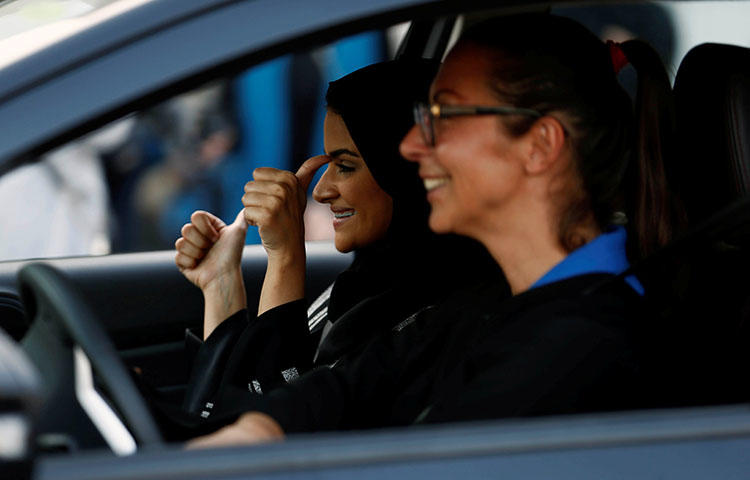New York, May 22, 2018–The Committee to Protect Journalists today expressed concern over the detention of Eman Al Nafjan, a Saudi blogger who writes about women’s issues, and urges the country’s authorities to confirm her whereabouts and release her immediately.
Saudi security forces detained Al Nafjan alongside at least six other people associated with the women’s rights movement who have campaigned for an end to the ban on women driving, according to the Washington Post, BBC Arabic, and other news outlets.
The Gulf Center for Human rights reported that Al Nafjan was detained May 17. CPJ was unable to confirm independently her detention date.
According to an AP report, Al Nafjan and the other detainees have not been allowed access to lawyers, and their whereabouts are unknown.
The Saudi Embassy in Washington, D.C. did not respond to CPJ’s emailed request for comment.
“Crown Prince Mohammad Bin Salman recently toured the West to project the image of a modernist and reformer. But the moment he’s back home Saudi authorities revert to old habits — stifling dissent and detaining critical journalists,” CPJ Deputy Executive Director Robert Mahoney said. “The Crown Prince needs to translate rhetoric into action and end the repression of journalists in the Kingdom. Writing about the place of women in Saudi society is not a crime. Eman Al Nafjan must be released immediately.”
An official statement from the Saudi State Security Presidency, which oversees domestic and international security forces, did not name Al Nafjan or any other detainee but confirmed that authorities had detained seven people for undermining the kingdom’s stability with financial assistance from abroad and for subverting national and religious traditions. The State Security Presidency also said that investigations are underway to identify additional people involved, according to the statement.
The newspaper Okaz, one of the kingdom’s more liberal, privately owned pro-government papers, ran a full-page graphic repeating language from the State Security press release showing photos of Al Nafjan and the other arrested activists with the word “traitor” stamped over each of their faces.
Al Nafjan founded the blog, “Saudi Woman,” that features her reporting and opinions on the campaign to end the ban on women driving in the kingdom, as well as coverage of women’s rights issues, local elections, the Saudi anti-terror law, and profiles of Saudi human rights activists. Al Nafjan’s reporting included op-eds and analysis of women’s rights movements in Saudi Arabia, feminism in Saudi society, reform movements and protests in the kingdom, and education and textbook standards put forth by the Saudi Ministry of Education. She has also contributed opinion pieces to CNN, Foreign Policy, Newsweek, and the Guardian.
In her role as an activist, Al Nafjan took part in the campaign to end the driving ban, including by publicly driving a car in defiance, according to the Gulf Center for Human Rights.
The arrests come as Saudi Arabia prepares to end the ban on women driving on June 24, after years of pressure from activists within the kingdom, according to news reports. Women active within the movement were threatened by the Saudi state security apparatus last year after the impending end of the ban was announced and were ordered not to speak to international media, according to the Gulf Center for Human Rights and the Project on Middle East Democracy.
Saudi Arabia has at least seven journalists behind bars as of December 1, 2017, and in February 2018 sentenced columnist Saleh al-Shehi to five years in prison for “insulting the royal court,” according to CPJ research.
